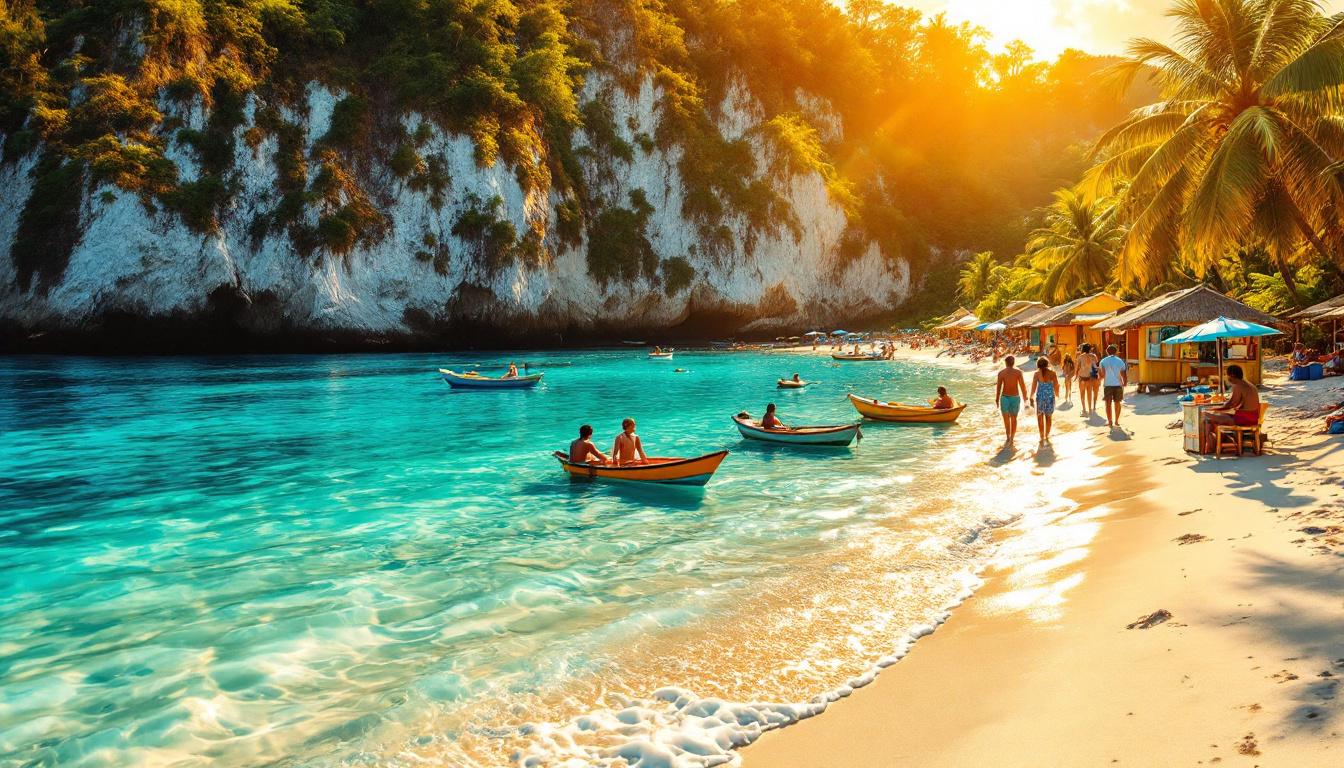Seven years of legal battles, community protests, and fierce determination—that’s what it took for the residents of Fairy Hill to protect their beloved Winnifred Beach from corporate privatization. While Jamaica’s coastline falls victim to resort development, this small Portland Parish community fought the Urban Development Corporation and won, preserving one of the island’s last truly free public beaches.
The Free Winnifred Beach Benevolent Society formed in 2009 when developers threatened to fence off their “heritage treasure.” Today, locals still guard this pristine stretch of sand with the same protective instinct that sparked their David-versus-Goliath victory.
What makes their success so remarkable isn’t just the legal triumph—it’s how they’ve created an authentic Jamaican beach experience that mainstream tourism can’t replicate or destroy.
The community’s seven-year battle against privatization
Legal victory that changed everything
In October 2014, the Port Antonio Magistrates’ Court delivered a landmark ruling that forever changed Winnifred Beach’s fate. The court ordered the UDC to establish a permanent easement granting “bathing and recreational rights” to the public—a legal protection that survives any future ownership changes.
Grassroots resistance tactics that worked
The community’s strategy combined legal expertise with passionate advocacy. They enlisted pro bono attorneys, organized international awareness campaigns, and held firm against profit-driven development proposals. Their persistence transformed a local land dispute into a celebrated case of community-led tourism stewardship.
Why locals actively discourage mass tourism
The rocky road barrier they refuse to fix
That infamous “wildly rocky road” leading to Winnifred Beach isn’t an oversight—it’s intentional protection. The 15-minute bumpy drive from the main road deters tour buses and casual visitors, naturally filtering tourists to those genuinely interested in authentic experiences rather than Instagram moments.
Community-first economics over corporate profits
Local vendors operate freely here, selling fresh jerk chicken and fried plantains from rustic beach huts without corporate interference. Residents describe the beach as their “lifeline,” providing direct income to families without resort middlemen taking profits offshore.
The authentic experience mass tourism destroys
Free access in an era of privatized beaches
While Negril and Montego Bay beaches charge entry fees or restrict access to resort guests, Winnifred remains completely free. No gates, no dress codes, no minimum spending requirements—just pure Jamaican hospitality and crystal-clear waters available to everyone.
Cultural preservation through selective sharing
The community welcomes respectful visitors but maintains strict informal guidelines. No overnight camping, no aggressive sales tactics, no littering—simple rules that preserve the beach’s natural beauty and peaceful atmosphere that locals have protected for generations.
How to visit without contributing to overtourism
Supporting community vendors directly
Every purchase from beachside vendors directly benefits local families rather than corporate chains. Try the escovitch fish prepared fresh daily or sample guineps (Spanish limes) sold by friendly locals who’ve been coming here for decades.
Respecting the unwritten rules
Arrive during daylight hours, as the beach closes at sunset for safety. Bring water and supplies since there’s no electricity or plumbing—part of the rustic charm that keeps this place authentic. Most importantly, engage genuinely with vendors and locals rather than treating them as photo opportunities.
Planning your respectful visit to Winnifred Beach
What should I expect at Winnifred Beach?
Expect a rustic, authentic Jamaican beach experience with local food vendors, calm clear waters, and genuine community hospitality. Don’t expect resort amenities—the lack of infrastructure is intentional and part of its charm.
How do I get there from Port Antonio?
Take the coastal road east for about 10 minutes to Fairy Hill, then follow signs down the rocky access road. Many taxi drivers know the location, though some refuse the rough drive.
When is the best time to visit?
Weekday mornings offer the most peaceful experience, while weekends bring more local families enjoying their community beach. The dry season (December-April) provides optimal weather conditions.
Winnifred Beach represents something increasingly rare in Caribbean tourism—a community that successfully resisted corporate takeover while welcoming respectful visitors. Their seven-year fight preserved not just a beautiful beach, but a model for sustainable, community-led tourism that benefits locals first.
Visit with respect, spend with local vendors, and you’ll experience the authentic Jamaica that mainstream tourism tries to replicate but can never truly capture.
